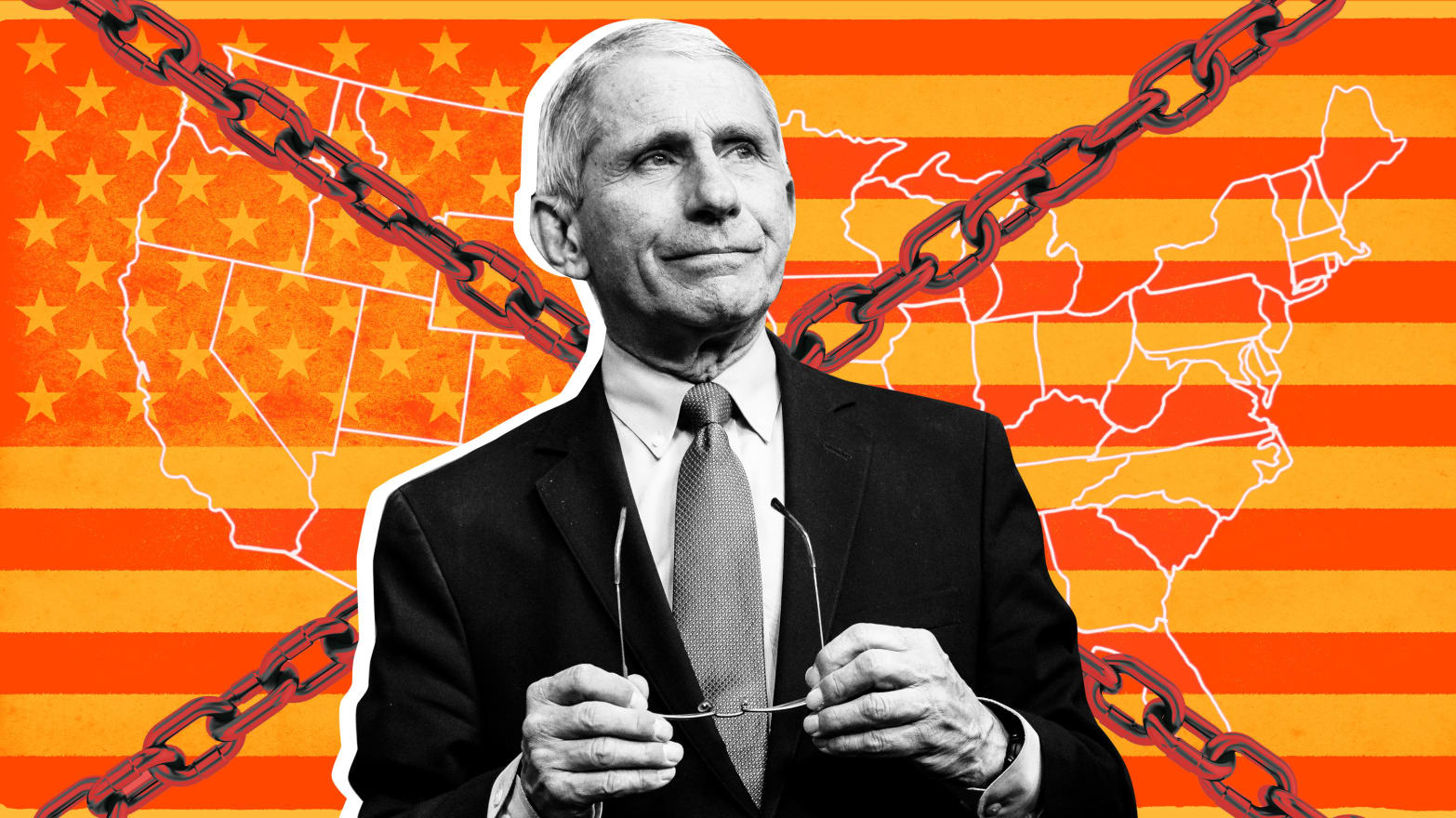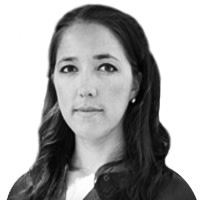With top officials in the Trump White House declaring the mission accomplished in slowing the spread of the coronavirus, the nation’s leading infectious disease expert is sounding a more cautious note.
There’s no need to talk about avoiding a second wave of the pandemic, Dr. Anthony Fauci, the head of the National Institute of Allergy and Infectious Diseases said on Tuesday, because the country is still in the first one.
“We are seeing infections to a greater degree than they had previously seen in certain states, including states in the southwest and in the south,” Fauci said. “I don't like to talk about a second wave right now, because we haven't gotten out of our first wave.”
Fauci’s comments, which came during an interview with The Daily Beast on Tuesday, rang far different to the triumphant tune sung by Mike Pence that same day in Iowa, when the vice president touted lower death counts and exclaimed “We did it!” with respect to flattening the curve. And they come as counties across the country, including in states such as Arizona, California, North Carolina, Alabama and South Carolina, continue to see coronavirus cases and related hospitalizations increase.
Fauci wasn’t entirely despondent about the trajectory the country was taking. He said he did not think it was “inevitable” that the U.S. would see another wave of infections and doubted that there would be another scene similar to that of New York City in April, where officials reported thousands of new cases a day and hospitals overflowed with patients.
“New York, unfortunately, really got hit by surprise, because they had activity coming into this city from Europe when everybody was focusing on China. They all of a sudden found that they had a massive outbreak,” he said. “I don't think that could happen under today's circumstances of our full awareness of the potential of this virus, which is highly transmissible.”
Fauci also said he did not believe that cities would have to go back into lockdown (after having started the process of reopening) because of the virus’ spread. “I really don't think so,” he said. And, he said, while there’s still some reason to worry about the outbreaks across the country, rising case numbers can be managed if states continue to work to maintain the virus.
“When you start to see the inevitable exceptions that you might see when you try to pull back on the mitigation and open up… use public health measures to help you to get to your goal,” Fauci said. “Namely, if you get new infections, you put into place, the manpower, the system... the ability to identify, isolate and contact-trace so that you're actually utilizing public health measures to help you to open up.”
The longtime infectious disease specialist was clearly nervous about some of the rush to reopen that he’d seen, noting the images on TV of “people congregating in bars, with no masks.” And he didn’t sugarcoat his anxiety about his boss—President Donald Trump—moving forward with plans to hold large-scale events, including in cities with new or recurring outbreaks such as Tulsa, Oklahoma and Phoenix, Arizona.
Asked if he would personally attend, Fauci said “No.”
“I'm in a high risk category. Personally, I would not. Of course not,” he said, adding that when it came to Trump’s rallies “outside is better than inside, no crowd is better than crowd” and “crowd is better than big crowd.”
Fauci’s comments come at a political inflection point with respect to the pandemic. With increasing case numbers, public health experts around the country have begun calling for the consideration of secondary lockdowns. But many acknowledge that it may not seem tenable for any state leader to actually order one.
In Texas, city leaders in Austin and Houston have tried to implement local stay-at-home orders. But none are allowed to impose anything more strict than Gov. Greg Abbott’s executive orders, and local officials have been threatened with legal action from some residents for trying to enforce mandatory mask-wearing. In Oklahoma and in Arizona—where national public health experts have called special attention to rising cases and with New York Gov. Andrew Cuomo dubbing the state’s surges a “cautionary tale” for reopening too quickly—concerns have been heightened by President Trump’s plan to restart large-scale rallies there.
Scientists and doctors have said repeatedly that until a vaccine for the coronavirus hits the market, the risk of the infection spreading will continue in communities across the nation. Fauci noted that companies have signaled to the administration that a vaccine would not be ready until the first quarter of 2021.
Some of the companies particularly said they could have 100 to 200 million doses by then, Fauci said. He declined to say whether or not he believed the vaccine should be made free for public consumption. But he did say he expected that without universal availability, “you prioritize by people at the highest risks. For example, health workers who deliberately put themselves in harm's way to help care for people. In addition, those who have comorbidities which put them at a greater risk to be able to develop the complications leading to a poor outcome.”
Fauci’s interview with The Daily Beast came in the middle of a renewed media tour. The infectious disease specialist had been a regular presence on television and in the White House briefing room during the early stages of the pandemic. But in recent weeks his public speaking had been limited as had his conversations with President Trump.
Throughout the interview, he expressed reservations that his press appearances were often reduced to “soundbites” that misconstrued the meaning of his message. Normally loquacious, Fauci, on several occasions, begged off questions for fear that they would land him in trouble.
He acknowledged that things are different now than when he’s faced other public health crises. And here’s what’s made his job more difficult: the politicization of the virus.
“There’s more back-and-forth... people of different political stripes that are taking shots at each other,” he said. “I don't think it's more disinformation. It is just a situation of hoping that people would all be pulling together as opposed to, you know, being at odds with each other.”


